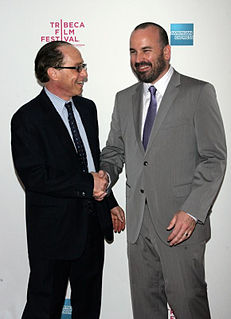A Quote by Shepherd Mead
Not even computers will replace committees, because committees buy computers.
Related Quotes
Everything is being run by computers. Everything is reliant on these computers working. We have become very reliant on Internet, on basic things like electricity, obviously, on computers working. And this really is something which creates completely new problems for us. We must have some way of continuing to work even if computers fail.
Run for your lives-the computers are invading. Awesomely powerful computers tackling ever more important tasks with awkward, old-fashioned interfaces. As these machines leak into every corner of our lives, they will annoy us, infuriate us, and even kill a few of us. In turn, we will be tempted to kill our computers, but we won't dare because we are already utterly, irreversibly dependent on these hopeful monsters that make modern life possible.
Science fiction does not attempt to predict. It extrapolates. It just says, "What if?" not what will be? Because you can never predict what will happen, particularly in politics and economics. You can to some extent predict in the technological sphere - flying, space travel, but even there we missed badly on some things, like computers. No one imagined the incredible impact of computers, even though robot brains of various kinds but the idea that one day every house would have a computer in every room and that one day we'd have computers built into our clothing, nobody ever thought of that.
With genetic engineering, we will be able to increase the complexity of our DNA, and improve the human race. But it will be a slow process, because one will have to wait about 18 years to see the effect of changes to the genetic code. By contrast, computers double their speed and memories every 18 months. There is a real danger that computers will develop intelligence and take over. We urgently need to develop direct connections to the brain so that computers can add to human intelligence rather than be in opposition.






































